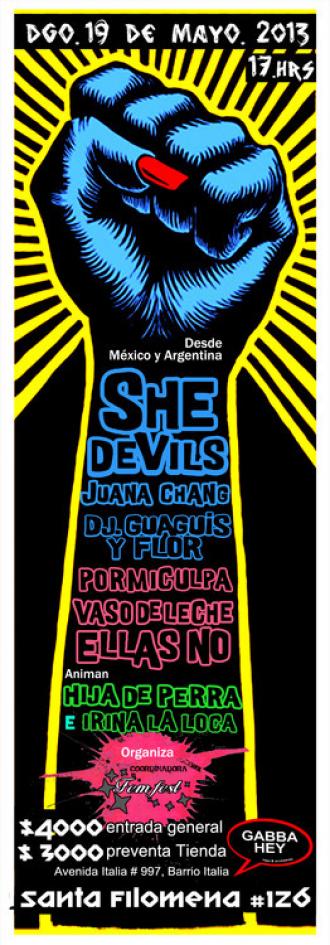For Christina Azahar, a Ph.D. student in ethnomusicology, music festivals are more than a good time. She recently returned to Berkeley after a year as a Fulbright Fellow in Chile, conducting research for her dissertation on the intersection of feminism and popular music in Chile.
Arriving in Chile in January 2018, Azahar witnessed a massive strike by university students seeking to transform an academic atmosphere of machismo into one of inclusivity. Student activism in response to the high cost of education has been on the rise since 2006, but this strike had a particularly feminist bent, with roots in NiUnaMenos, the South American movement protesting sexual harassment and violence against women.
“Looking back at the progressive movement [of the 60s and 70s], feminist issues were not addressed,” says Azahar, who first went to Chile as an undergraduate to study nueva canción, the protest music of that era. Witnessing the strike, Azahar realized that she had chosen a perfect moment to examine the rise of Chilean music festivals by and for women. In her fieldwork, Azahar discovered a distinctive approach to organizing, producing, and staging.
Azahar met the organizers of Coordinadora Femfest, which offers a course that trains women to run sound, using a music festival as the students’ practicum. “They do everything,” says Azahar, noting that Femfest has avoided outside funding, which is freeing, but requires year-round work. Azahar says Femfest’s collaborative approach “changes the way that people see music can be done” and catalyzes community efforts to create a more equitable society.
